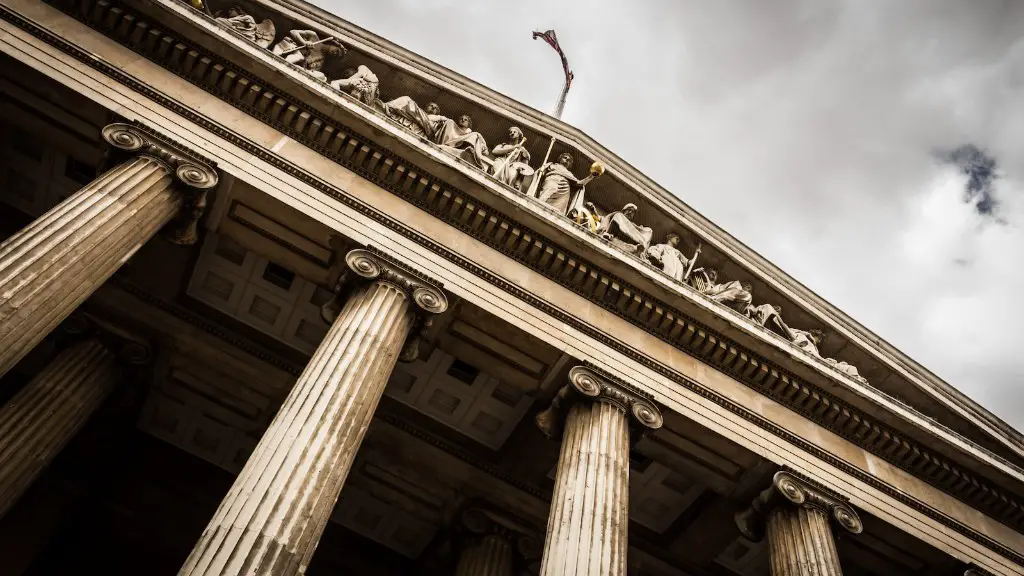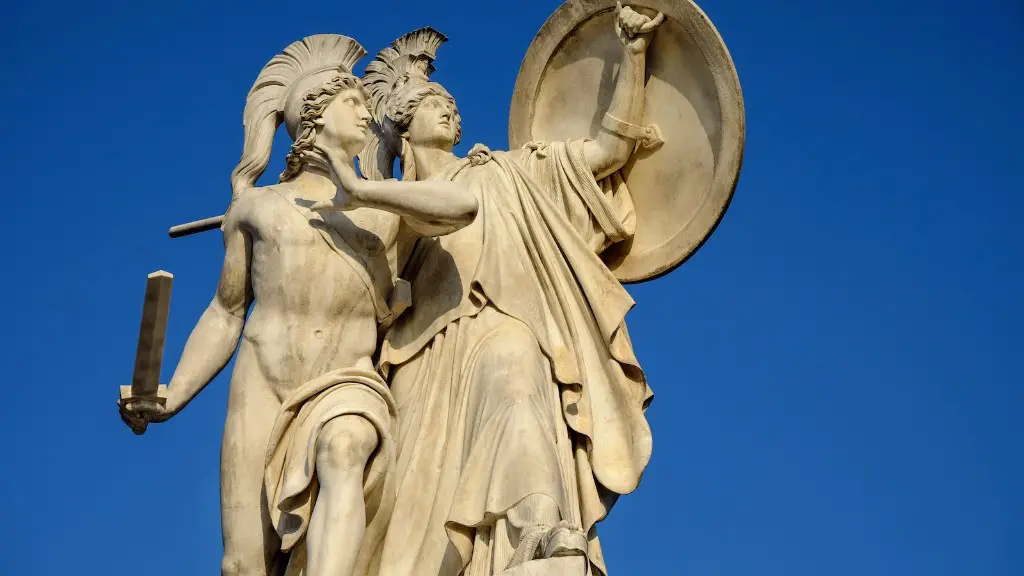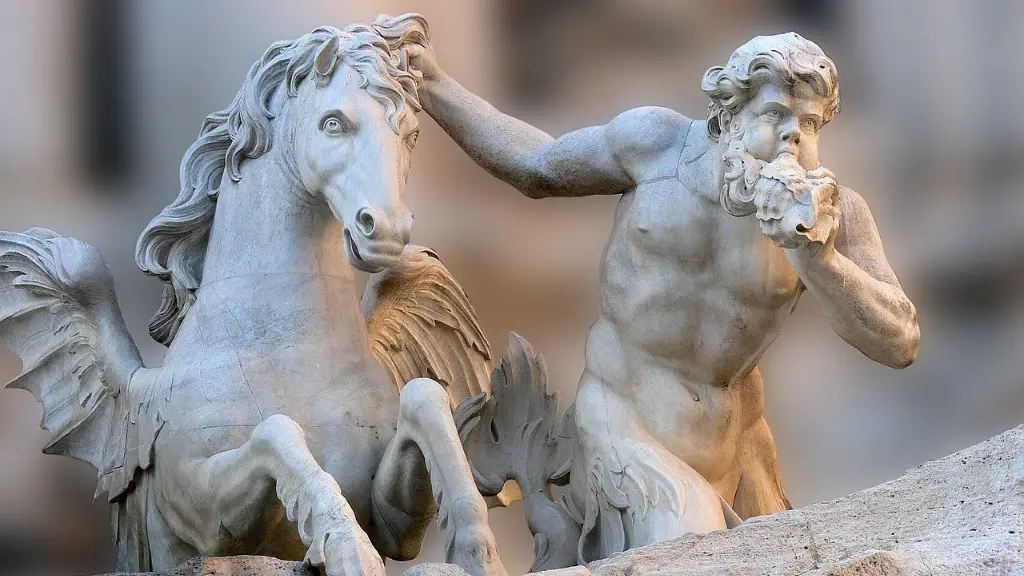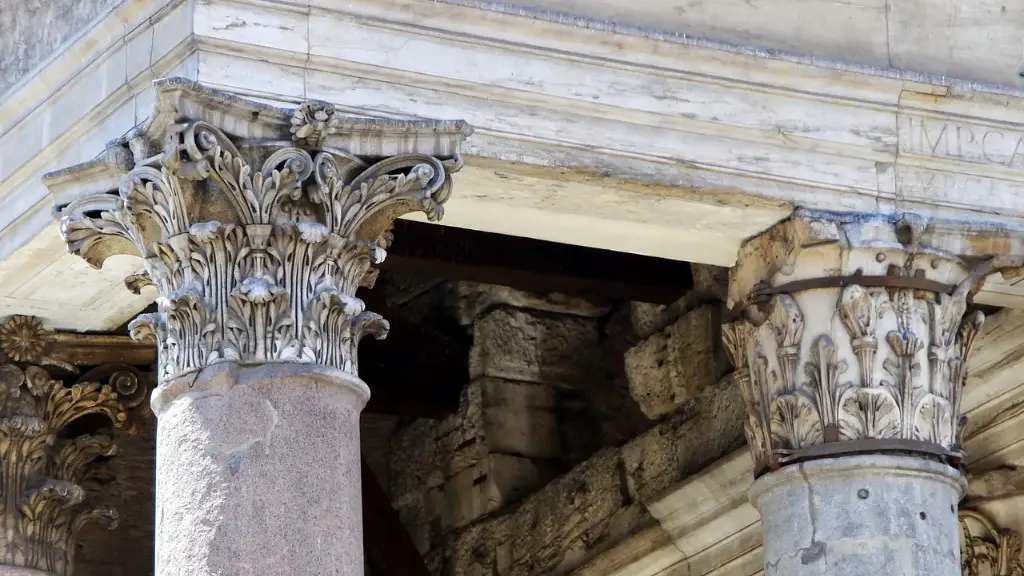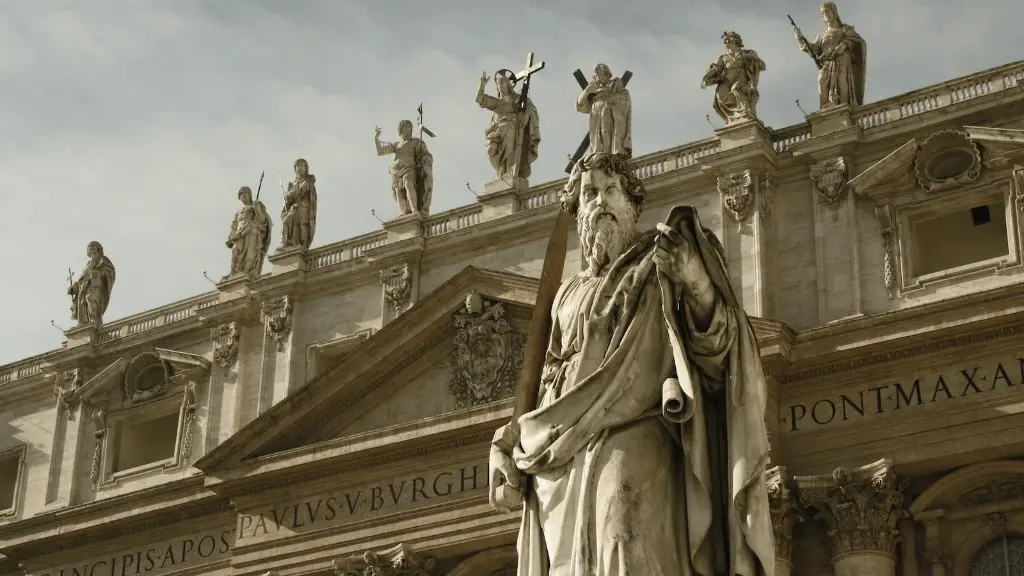The Influence of the Greek Education System on Ancient Rome
Ancient Rome was one of the great empires of the ancient world and its legacy has had a lasting impression on the world today. As the city of Rome grew in power, it adopted many practices, customs, and systems of the peoples it conquered. One of the most significant influences on Rome was the Greek education system.
Greek civilization, which existed long before Rome’s birth, was home to some of the most renowned intellectual minds of the ancient world. After their cities were conquered by the Romans, the Greek educational system was adopted wholesale by the Roman ruling class.
In Greece, education for the elite was centered around two core subjects: rhetoric and philosophy. Rhetoric taught the art of debate and public speaking, while philosophy focused on developing a critical and analytical mind. Both subjects were vital to the functioning of Roman democracy, as the elite were required to be able to influence the public to ensure the preservation of their rule.
Alongside rhetoric and philosophy, Ancient Greek education also stressed the importance of physical disciplines such as athletics and music. Greek athletic competitions were renowned throughout the ancient world and the Roman adoption of the Olympics was just one example of the reverence they paid to their predecessors’ sporting achievements. Music was also an essential part of Roman society, used to convey different emotions and status, while skilled performers were highly sought-after.
The Greeks also pioneered the concept of formalized education. From an early age, students were expected to attend school, and their educational progress was closely monitored by their teachers. This gave the Roman ruling class unprecedented control over the intellectual development of their citizens, ensuring only the best and brightest were able to ascend to the elite.
The Greek education system was highly influential in the development of Ancient Rome and its legacy can still be felt to this day. The intellectual and physical accomplishments of Ancient Greece are immortalized in the works of Roman authors, while the system of formalized education is still used in most Western societies.
The Legacy of Greek Education in Ancient Rome
The legacy of Greek education in Ancient Rome can still be seen in the contemporary world. Many of the concepts taught by the Greeks are still at the core of modern education, such as rhetoric and philosophy. The Ancient Greek practice of physical discipline and exercise has been adapted by the ancient Romans into a system of personal fitness and health, which is still practiced in many cultures today.
The standardized system of examination and evaluation was pioneered by the Greeks and adapted by the Romans. The ancient Greeks developed the concept of the Delian League, a strict system of grading based on difficult intellectual questions and tests. This system was adopted by the Romans and is still used by Western education systems today.
Greek education also heavily influenced Roman culture and values. Greek literature and philosophy shaped the minds of the Roman elite and had a profound effect on the arts and culture. Roman authors and philosophers, such as Cicero and Quintilian, incorporated many of the ideas developed by the Greeks into their works.
Greek education also had a significant impact on Roman behavior, shaping their attitudes and beliefs. This can be seen in the emphasis the Romans placed on a strong family unit, the reverence they paid to the gods, and the emphasis they placed on a strong ethical code.
The Impact of Greek Education in the Modern World
The legacy of the Ancient Greek education system can still be seen in many aspects of the modern world. Many of the concepts and practices developed by the Greeks and adopted by the Romans have shaped the modern educational system. The idea of grading based on intellectual ability and the concept of a standardized system of education were all heavily influenced by the Greeks.
The emphasis placed by the Greeks on physical development and discipline is also still evident today. The Olympic Games are seen as the pinnacle of athletic excellence and represent the legacy of the ancient Greeks. Modern-day athletes train and compete in many disciplines developed by the ancient Greeks, such as running, wrestling, boxing, and discus-throwing.
Finally, the cultural and philosophical influence of the Greeks can still be felt to this day. The works of ancient Greek philosophers and authors such as Plato, Aristotle, and Homer have had an enormous impact on modern-day culture and literature. These great thinkers have shaped the minds of many generations and continue to inform the way we think and understand the world around us.
Conclusion
The influence of the Ancient Greek education system on Ancient Rome can not be overstated. From the standardized system of examination and grading to the reverence for physical activity, the influence of the Greeks on Roman culture, values, and behavior was profound. This influence can still be felt to this day, with many of the concepts developed by the Greeks still at the heart of contemporary education.
The Language of Greek Education in Many Disciplines
The language of Greek education is one that can be seen in many disciplines, from rhetoric and philosophy to music, poetry and theater. Rhetoric, the study of persuasion and argument, was a central component of Greek education. Philosophers such as Plato, Aristotle and Socrates used rhetoric as a tool to communicate their ideas and to engage students in dialogue and critical thinking.
Music was also a major focus in Greek education. Music theory and composition were studied, as well as the performance of songs and instrumental pieces. Music was seen as a way to express emotion and to bring people together. It was also used to impart moral and ethical lessons, as well as to celebrate important events or gods and goddesses.
Poetry and drama were also central components of Greek education. Students were taught how to communicate ideas and stories through verse, as well as how to appreciate and analyze the works of great poets and playwrights such as Homer, Aeschylus and Sophocles. Greek plays were used to illuminate themes of tragedy, comedy, war and peace.
Finally, mathematics and science were also important aspects of Greek education. Students were taught how to use mathematical principles to solve real-world problems, and an understanding of scientific concepts such as physics and astronomy was seen as essential for a well-rounded education.
The Methods Used to Impart Greek Education
The Ancient Greeks used a variety of methods to impart their education. One of the main methods was dialogues between a teacher and student, similar to the Socratic method of questioning. This was used to help students gain a better understanding of a particular field or concept. Additionally, lesson plans were used to break up the material into manageable chunks, with each section focusing on a different topic.
The Greeks also used literary works to impart their education. Many of the works of Homer and other ancient Greek authors have timeless lessons to impart. Other works of literature such as the Iliad and the Odyssey were used to help students understand the values and principles of their culture.
Finally, the Greeks made use of physical activities to impart their education. Athletics, music and theatre were all used to convey messages and lessons to students. Physical activities also helped to develop physical fitness and coordination in students, helping to prepare them for the rigors of ancient Greek life.
Conclusion
The ancient Greek education system had a profound influence on the development of Ancient Rome. Greek concepts such as rhetoric, philosophy and physical activity were all adopted by the Romans and still influence the way we educate today. The language of Greek education can be seen in many disciplines, from rhetoric and philosophy to music, poetry, and theatre. Additionally, the methods used by the Greeks to impart their education, such as dialogues and lesson plans, were also adopted by the ancient Romans. The legacy of the Greek education system in Ancient Rome can still be felt today.
